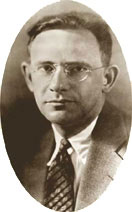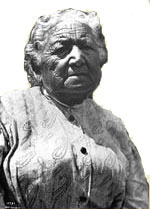|
|
|
Barbeau's StoryThe Ethnologist (1)Well I was sorry to leave Europe. I came to Ottawa. Before me, Dr. Edward Sapir was appointed to study the Northwest Coast Indians, the Nootkas, and he went out on fieldwork. Another post was established for me to study other Indians. And I began January 1, 1911, alongside Sapir. Sapir said: "Why don't you study the Hurons? It is near your home. Lorette is near the city of Québec." Well, at once I remembered Prosper Vincent, the singer. "Yes, I'll go and see about him." In April, I went the city of Québec equipped with a little Standard Edison phonograph and the old wax cylinders which I knew were to be used for recording songs. I went to Lorette, and I wanted to see Prosper Vincent. They said, "He is in a home for aged priests in Levis." I found him in a room there, in a rocking chair. I told him that I remembered his song "WENIA, WENIA", I still remembered the tune. He laughed and tapped my shoulder and said, "My dear little Marius, we will do great work here. We will sing all those Indian songs for you. I know a number of them." So we began to make records of songs, sixty or seventy of them. Then I heard that there were Hurons and Wyandots out West. Some of them were along the Detroit River near Amherstburg. I went to see them. It is there that I heard for the first time the Huron language spoken by an old Huron woman named Mary McKee. And Mary McKee said: "I have relatives in Oklahoma. Go and see them and there you will learn far more than I can give you." So, I went to Oklahoma in 1911. I worked for three months there recording names, personal names of clans, customs, long tales, recording them in the language. |
Bibliography · Links · Credits · Index


